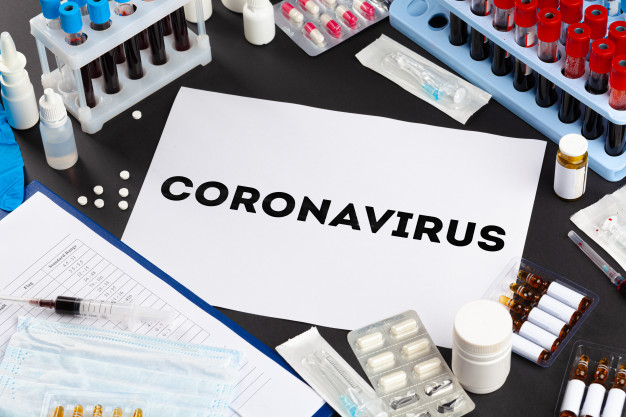By David Mata, MS
MS2 Loyola Stritch School of Medicine and MOLA Intern
Special contributions from Lourdes Shanjani, MD and Yanina Guevara
There are now more than 1 million COVID-19 cases and more than 230,000 deaths from COVID-19 in the United States (U.S.) according to John Hopkins University. The current COVID-19 pandemic is a modern example of jarring health inequalities in the U.S. and represents decades, if not centuries, of structural violence that have affected underrepresented minorities well into the 21st century. The novel coronavirus that has impacted the entire globe does not discriminate from a person’s immigration status, socioeconomic status or access to healthcare and disproportionately affects Latino and immigrant communities.
Although health data of racial and ethnic minority groups is still emerging during the pandemic, the CDC suggested a disproportionate incidence and mortality rates among these groups. New York City, the epicenter of the virus, reported that death rates among Black/African American and Hispanic/Latinos were substantially higher than that of White or Asian persons.

While Latino/Hispanic workers account for a large number of the essential workforce, they also experience lower rates of access paid leave, are three times less likely to be insured, lack access to healthcare services, and continue to suffer from racial disparities that ultimately sustain healthcare inequities even before the COVID-19 pandemic.
In order to help reduce health disparities during this pandemic, the CDC has recommended a variety of steps. A key step outlined by the CDC is to continue collecting data and monitoring disparities in racial and ethnic groups in the number of COVID-19 cases, complications, and deaths to improve clinical management, allocation of resources, and targeted public health information. Other steps that the CDC recommends is to improve access to healthcare services in underrepresented populations, allocating resources appropriately, and working to reduce cultural barriers to care.
Earlier in the month, the federal government began to follow some guidelines from the CDC by approving the Coronavirus Aid, Relief, and Economic Security (CARES) Act. The $2 trillion economic package provided critical unemployment assistance, small business relief and funding for healthcare to benefit families and businesses. Unfortunately, many immigrants, including those in mixed-status families and Deferred Action for Childhood Arrivals (DACA) recipients, were not eligible for relief and accessible testing, placing these community members in strained economic circumstances and increased health risk during this pandemic.
Since then, three more relief packages have been passed by Congress. The most recent $484 billion pandemic aid package focused on aid to small businesses, as well as money for hospitals and expanded testing capacity. Highlights from the package include financial resources for coronavirus-related expenses and compensating lost revenue in hospitals. It also provides $25 billion to expand coronavirus testing capacity which is currently lacking in the U.S and provides assistance to cover testing costs for the uninsured.
As the previous relief packages attempt to address certain challenges experienced by Latino/Hispanic businesses and physicians, it continues to leave out mixed-status families, DACA recipients, and the undocumented from any sort of aid, perpetuating health disparities in different communities and putting our economy at risk. While the stimulus packages attempt to aid the Latino community at large, Latinos/Hispanics continue to face barriers due to lack of access to equitable resources and completely leave out our immigrant communities, continuing a history of neglect.
We must remember that our American principles are rooted in the resilience and talent of our immigrant ancestors and are the backbone of our country. Immigrants and their families deserve equitable resources, especially those who are on the frontlines during a pandemic.
Currently, there are DACA healthcare workers, including DACA physicians, that are risking their lives to take care of patients. There is talent in our international medical graduate physicians that want to be part of the fight to give care to patients. There is currently no extension of DACA to protect our DACA healthcare workers in the frontlines and policies have not been relaxed so our international physicians can be given the opportunity to fight during a pandemic when the workforce is already constrained. These are only a few policies that can be implemented to protect our communities, in addition to more accessible resources for vulnerable populations.
While these policies are necessary to protect our most vulnerable community members, immigrant leaders, and allies across the country are not waiting for institutional relief for their communities. Movimiento Cosecha, Organized Communities Against Deportations and other similar organizations are calling on citizens to donate part of their stimulus relief funds to help undocumented immigrants that do not have access to basic necessities like health insurance, paid sick leave, or unemployment. These efforts speak to the resilience of immigrant communities and to the power of organizing especially in these unprecedented times.
Health disparities beyond the COVID-19 pandemic will continue to exist unless the root cause of inequities is addressed. I can only hope that after the COVID-19 pandemic, our lawmakers will understand that the real virus is the structural violence that plagues underrepresented minorities and realize the importance of an equitable healthcare system where we can all flourish in health.
